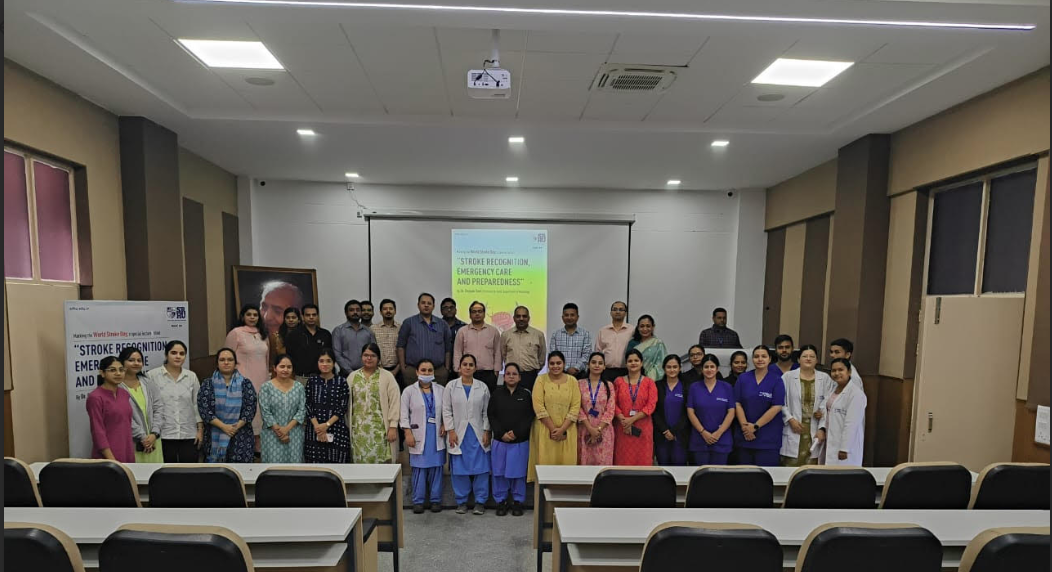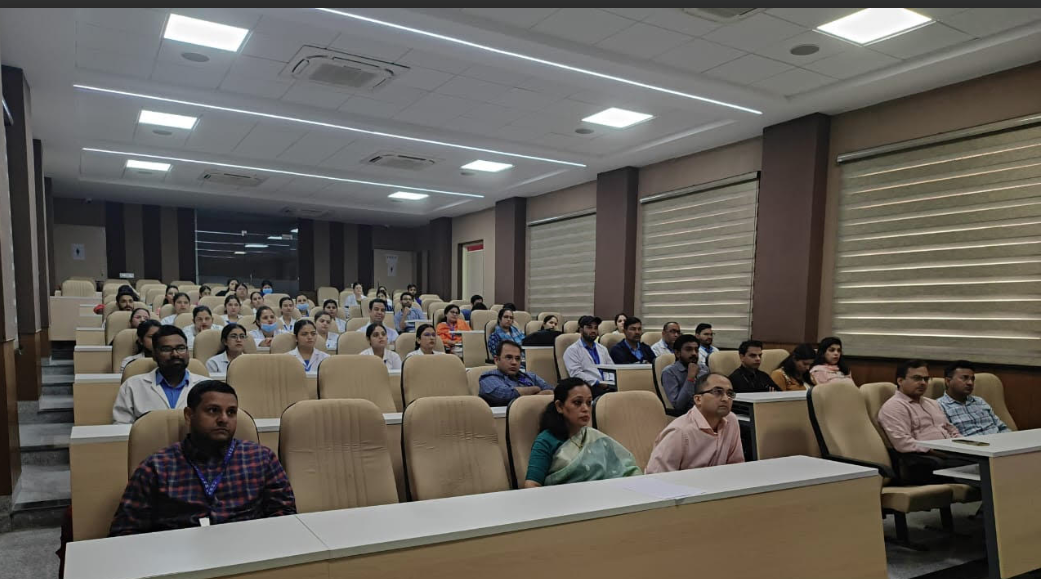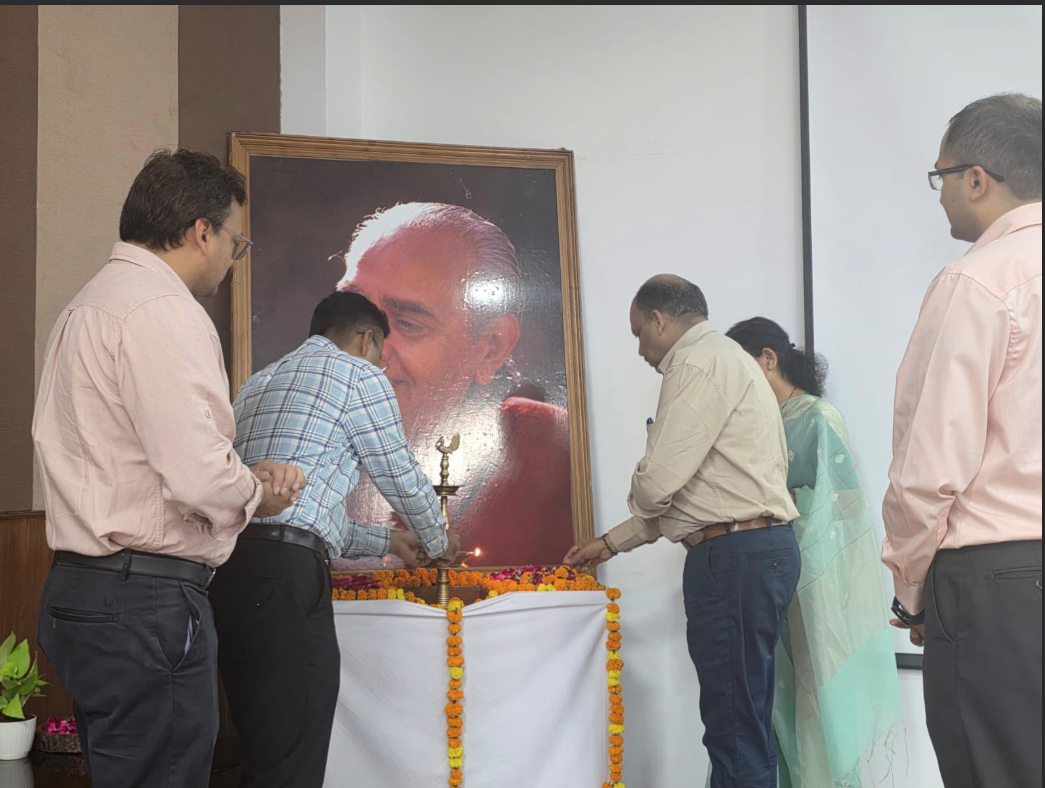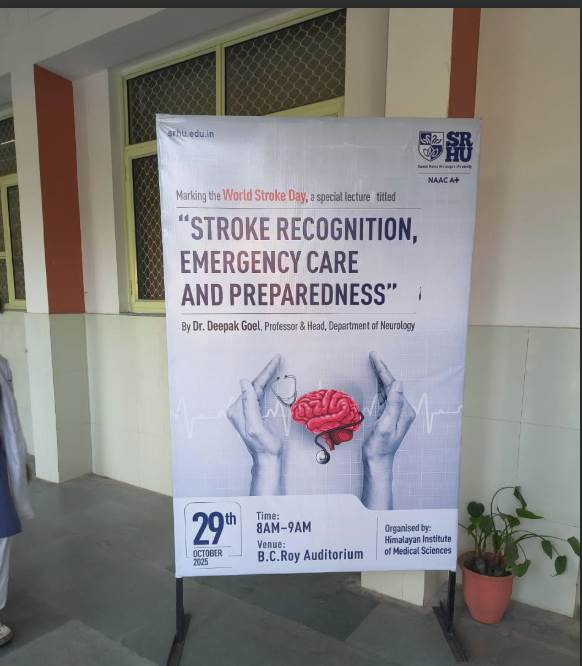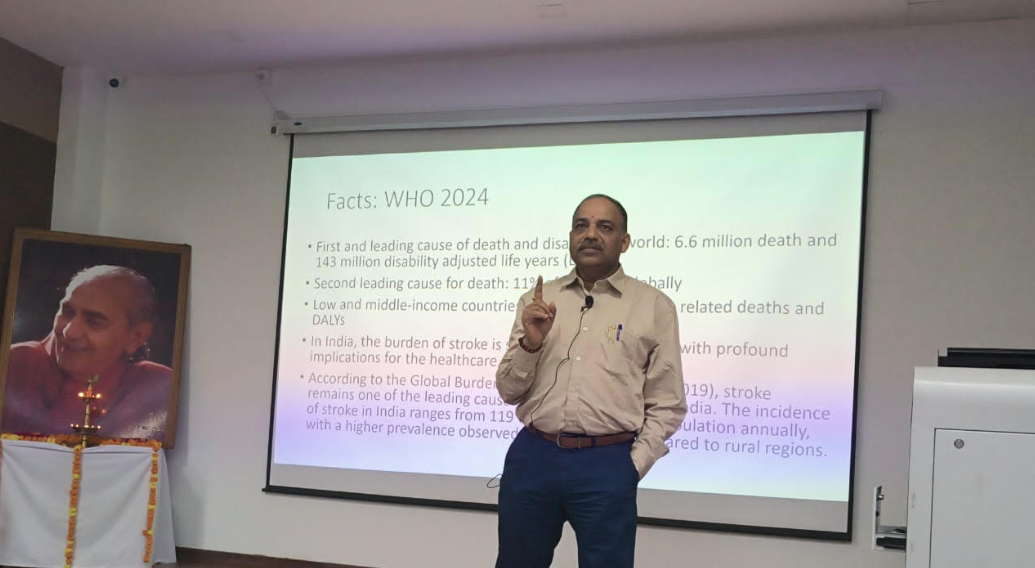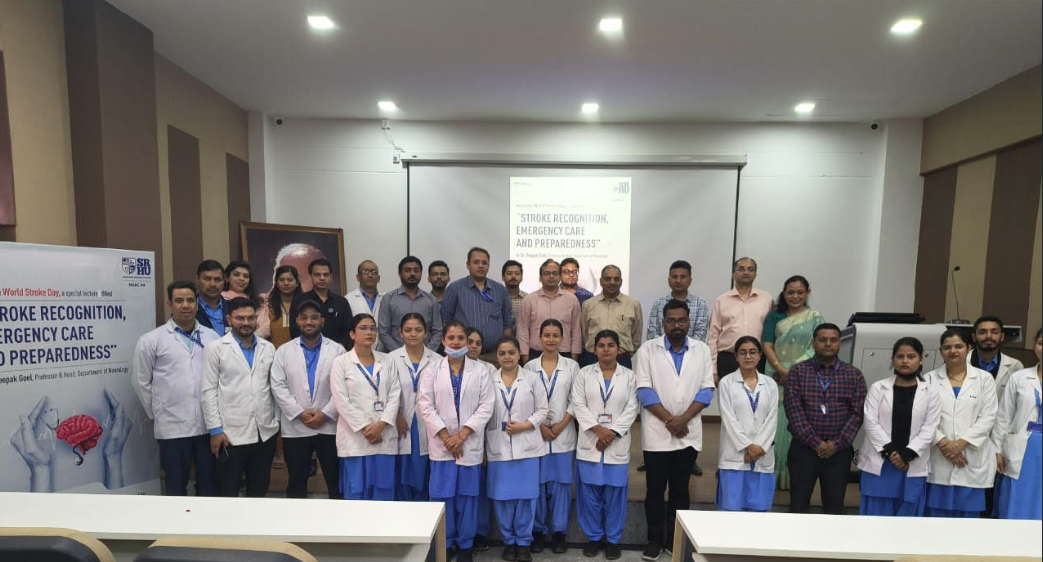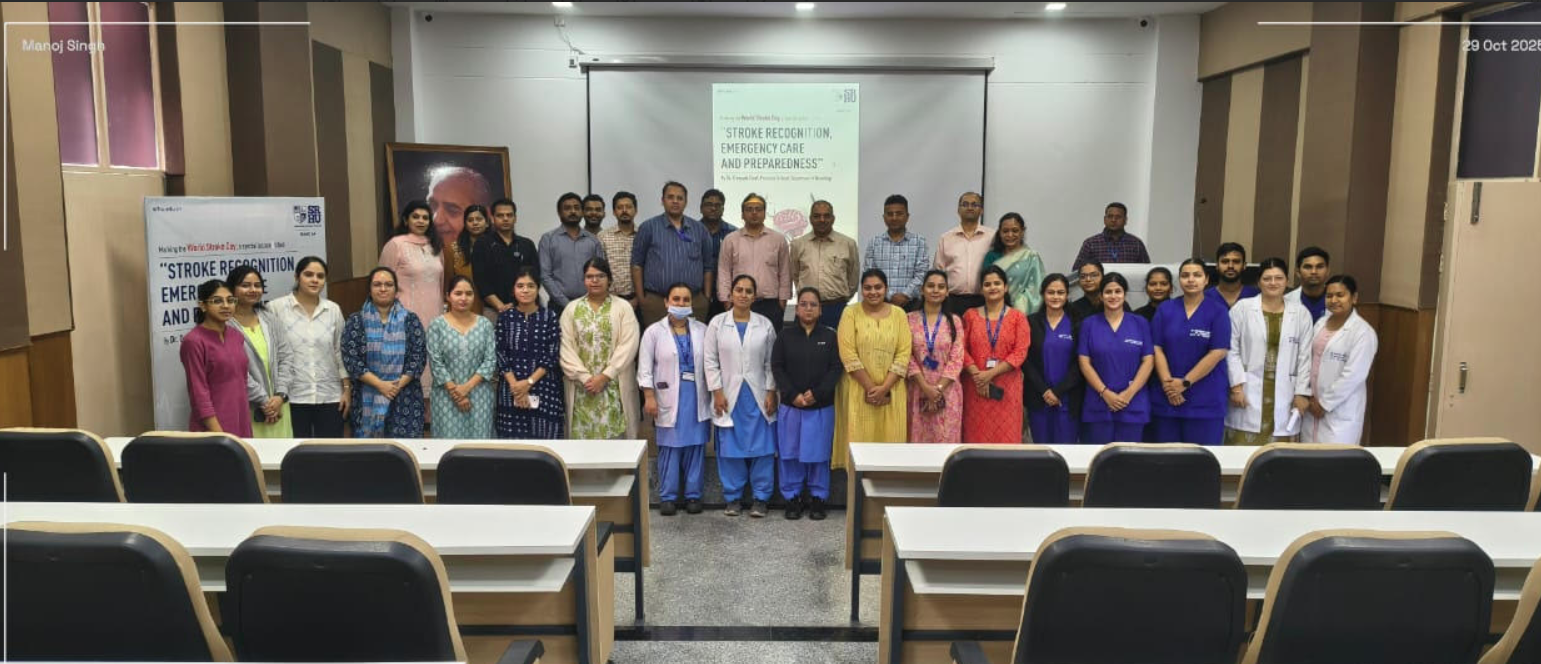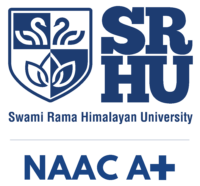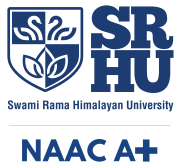Published on: October 29, 2025
World Stroke Day Observed at SRHU with Expert Talk on Stroke Burden in India
October 29 is recognised worldwide as World Stroke Day, aiming to raise awareness about stroke, its warning signs, prevention methods, and the need for prompt medical treatment. To mark this day, Dr Kanchan Bisht and Dr Kaushik Pramod Sharma, both Associate Professors and Scientists at the Department of Neurology, Himalayan Institute of Medical Sciences (HIMS), SRHU, organised an awareness session highlighting the increasing impact of stroke in India. The event underscored the shared responsibility of healthcare providers and the community in achieving better outcomes for stroke patients.
The invited talk, titled “Stroke Burden in India,” was delivered by Dr Deepak Goel, Professor and Head of the Department of Neurology at HIMS. He is a highly respected neurologist whose compassionate patient care and long-standing commitment to stroke prevention and treatment have made him a leading voice in advancing stroke awareness and improving neurological health in Uttarakhand. Addressing an audience that included clinicians, residents, nursing and emergency care teams, as well as allied health professionals involved in patient care, Dr Goel highlighted the numerous challenges associated with stroke prevention, management, and rehabilitation in India.
According to the WHO 2024 data, stroke is the second leading cause of death globally. India sees over 1.4 million new cases each year, with patients averaging 9.5 hours to reach a hospital, and up to 18 hours in Uttarakhand, often travelling over 100 kilometres for treatment, risking critical time to save the brain. Dr Goel pointed out that only two per cent of Indian patients receive life-saving therapy in time, a statistic that can and must change through greater public awareness and rapid response. He also noted that Uttarakhand currently lacks a comprehensive stroke care centre, and that HIMS, SRHU is actively working to establish one so that patients can receive the timely, advanced treatment they deserve and the state’s growing stroke burden can be effectively addressed.
He stressed that stroke is not only a disease of the brain but a crisis for the entire family. Survivors often face long-term disability, dependence, and emotional distress, while caregivers struggle with financial and mental strain. Early recognition of stroke warning signs, such as sudden weakness, slurred speech, or facial drooping, can save lives if acted upon immediately. Dr Goel emphasised that controlling blood pressure and diabetes, avoiding tobacco and alcohol, regular exercise, and timely follow-up after treatment are the strongest defences against stroke. He concluded that stroke prevention is not just a duty of doctors or hospitals, but a shared responsibility of every individual and community, because every minute saved means a life and a family preserved. A simple take-home reminder for everyone is the acronym FAST — Face drooping, Arm weakness, Speech difficulty, and Time to call for help, which can make the difference between recovery and lifelong disability. As emphasised throughout the session, in stroke care, “Time is Brain” and every minute saved can make the difference between recovery and lifelong disability.
